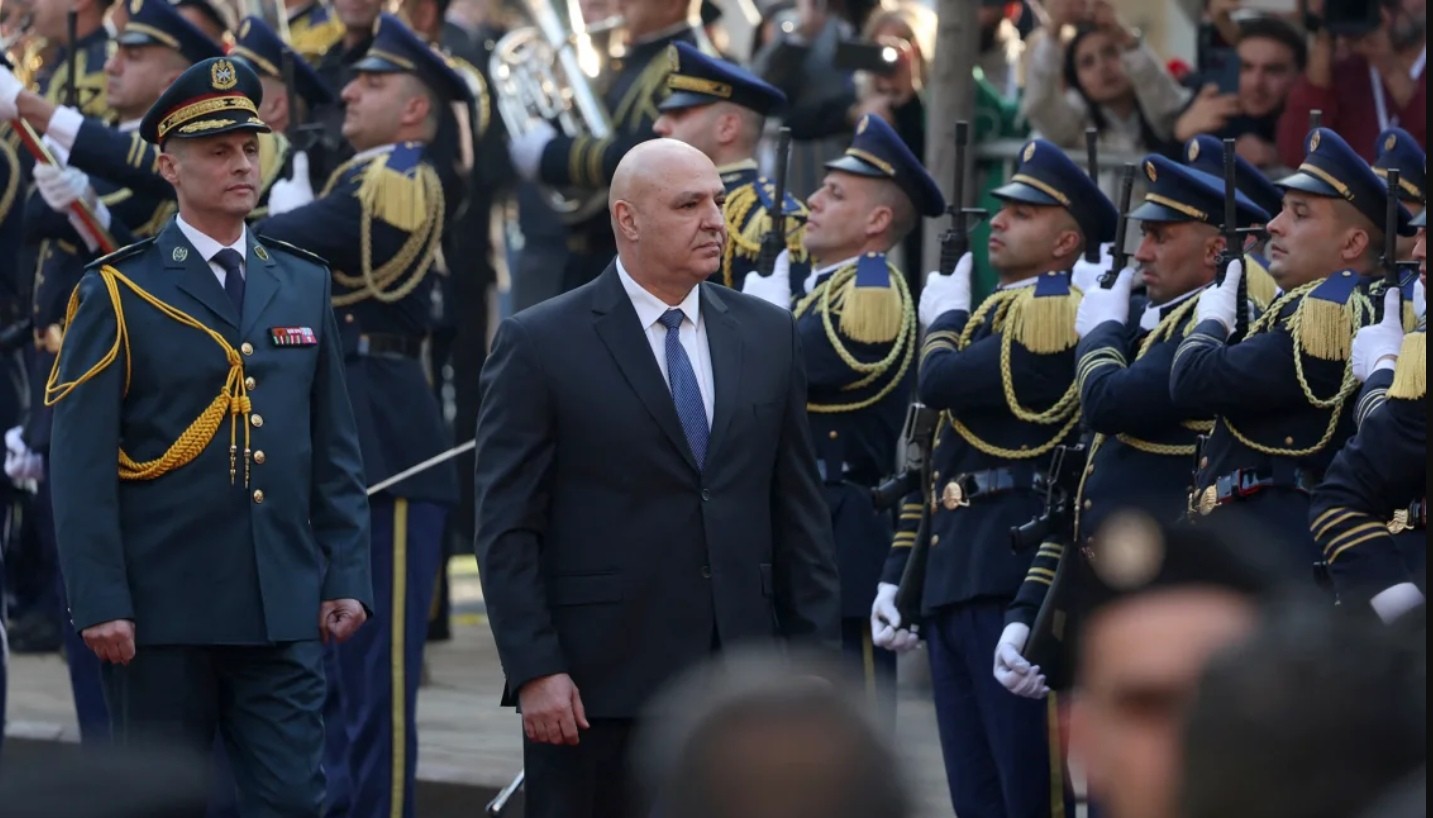Who Is President Cyril Ramaphosa: Early Life, Career, Personal Life, Achievements
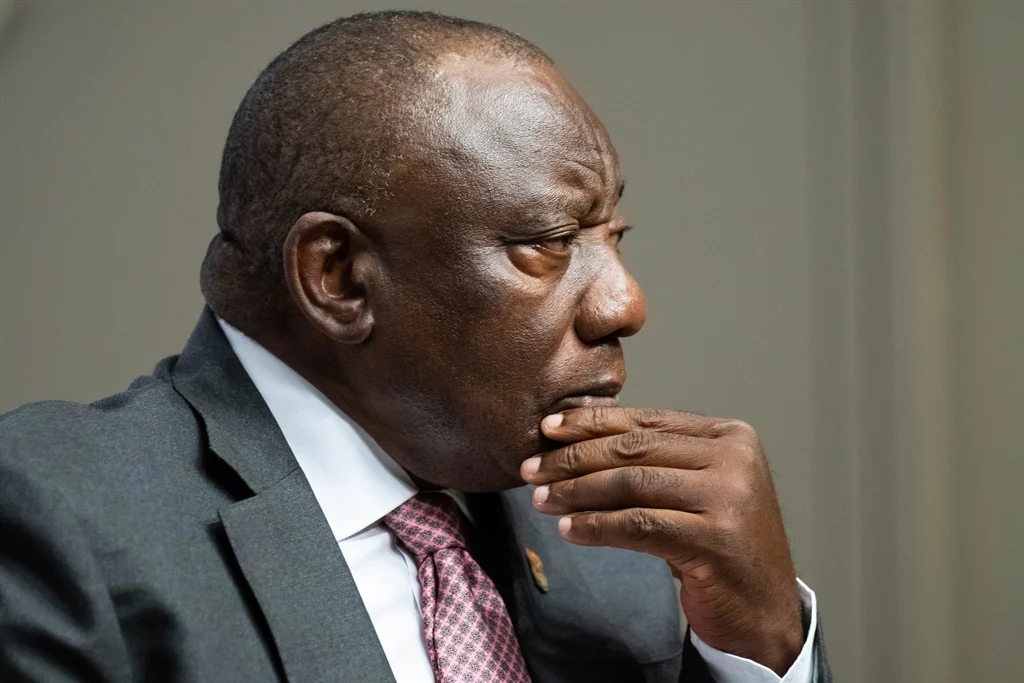 |
| Who Is President Cyril Ramaphosa: Early Life, Career, Personal Life, Achievements . Photo: News24h |
Matamela Cyril Ramaphosa (born 17 November 1952) is a South African businessman and politician who, since 2018, has served as the fifth democratically elected president of South Africa, as well as president of the African National Congress (ANC) since 2017. Previously an anti-apartheid activist, trade union leader and businessman, Ramaphosa served as secretary general to ANC President Nelson Mandela, deputy president to President Jacob Zuma, and chairman of the National Planning Commission from 2014 to 2018.
He has been called a skillful negotiator and strategist who acted as the ANC's Chief Negotiator during South Africa's transition to democracy. Ramaphosa built up the biggest and most powerful trade union in the country, the National Union of Mineworkers (NUM). He played a crucial role, with Roelf Meyer of the National Party, during the negotiations to bring about a peaceful end to apartheid and steer the country towards its first fully democratic elections in April 1994. Ramaphosa was Nelson Mandela's choice for future president. Ramaphosa is well known as a businessman, and his estimated net worth is over R6.4 billion ($450 million) as of 2018, with 31 properties and previously-held notable ownership in companies such as McDonald's South Africa, chair of the board for MTN and member of the board for Lonmin.
Biography of President Cyril Ramaphosa: Early Life
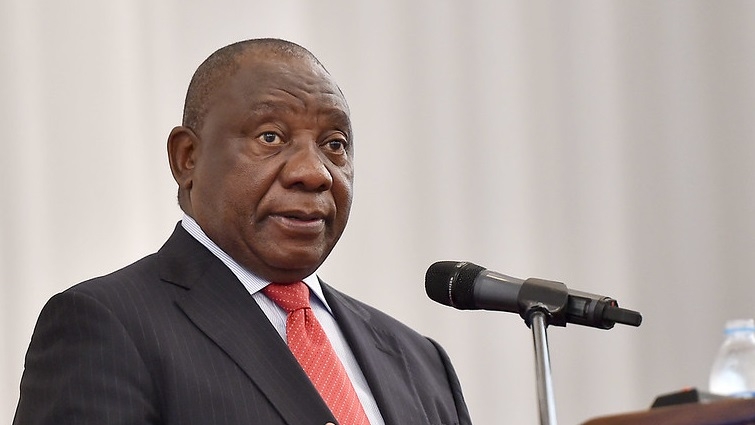 |
| Photo: SABC News |
Ramaphosa was born in Soweto, Johannesburg, on 17 November 1952, to Venda parents. He is the second of the three children to Erdmuth and retired policeman Samuel Ramaphosa. He attended Tshilidzi Primary School and Sekano Ntoane High School in Soweto. In 1971, he matriculated from Mphaphuli High School in Sibasa, Venda where he was elected head of the Student Christian Movement. He subsequently registered to study law at the University of the North (Turfloop) in Limpopo Province in 1972.
While at university, Ramaphosa became involved in student politics and joined the South African Students Organisation (SASO) and the Black People's Convention (BPC). This resulted in him being detained in solitary confinement for eleven months in 1974 under Section 6 of the Terrorism Act, 1967, for organising pro-Frelimo rallies. In 1976 he was detained again, following the unrest in Soweto, and held for six months at John Vorster Square under the Terrorism Act. After his release, he became a law clerk for a Johannesburg firm of attorneys and continued with his legal studies through correspondence with the University of South Africa (UNISA), where he obtained his B. Proc. Degree in 1981.
President Cyril Ramaphosa: Career
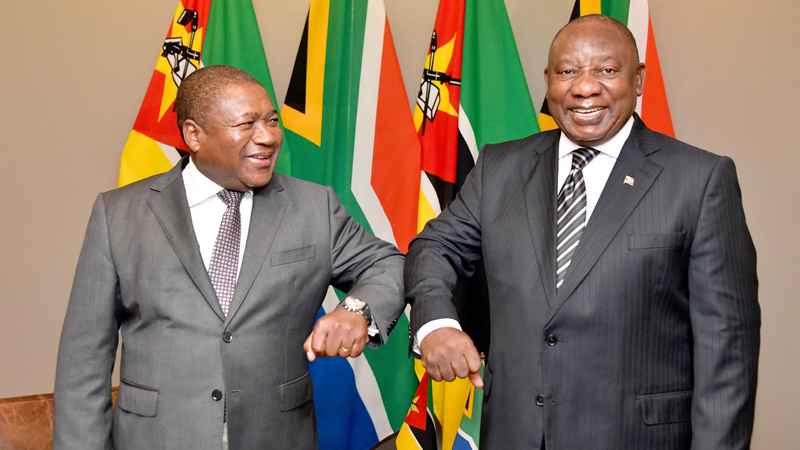 |
| Photo: euronews |
He registered to study law at the University of the North in 1972, where he became involved in student politics, joining the South African Student Organisation (SASO) and the Black People’s Convention (BPC). He was detained in solitary confinement for 11 months in 1974 under Section 6 of the Terrorism Act for organising pro-Frelimo rallies. He was detained for the second time and held for six months in 1976 following the Soweto student uprising.
While a law clerk for a Johannesburg firm of attorneys, he continued his studies through the University of South Africa (UNISA) obtaining his B. Proc degree in 1981. He then joined the Council of Unions of South Africa (CUSA) as a legal advisor.
In 1982, at the request of the Council of Unions of South Africa (CUSA) he founded the National Union of Mineworkers (NUM) with James Motlatsi and Elijah Barayi, and became the union’s first General Secretary. He was instrumental in building NUM into the most powerful union at the time, with membership rising from 6 000 to 300 000 during his tenure. He led mineworkers in one of the biggest strikes in South Africa’s history in 1987.
As NUM General Secretary he was instrumental in the establishment of the Congress of South African Trade Unions (COSATU), and played a prominent role in the Mass Democratic Movement (MDM) when COSATU joined forces with the United Democratic Front (UDF) against the apartheid government. He went into hiding in July 1986 after the declaration of a state of emergency.
He was later appointed chairperson of the Reception Committee to receive Rivonia trialists and in January 1990 accompanied released ANC political prisoners to Lusaka, Zambia. He served as chairperson of the National Reception Committee, which coordinated arrangements for the release of Nelson Mandela and subsequent welcome rallies within South Africa.
Following the unbanning of the ANC, in 1991 he was elected ANC Secretary General at its first national conference in over 30 years. He became head of the ANC’s negotiation team at the Convention for a Democratic South Africa (CODESA) and the subsequent multi-party talks.
Following South Africa’s first democratic elections on 27 April 1994, he became a Member of Parliament and was elected as Chairperson of the Constitutional Assembly. In that position, he was responsible for overseeing the drafting of South Africa’s internationally acclaimed first democratic Constitution. In 2009, this contribution was recognised with the award of the National Order of the Baobab in Silver.
On completion of the Constitution drafting process, he left Parliament and his position as ANC Secretary General to move into business, joining New Africa Investments Limited. In 2001, he established Shanduka Group as a black-owned investment holding company, building up a diverse portfolio of listed and unlisted assets.
In 2004, he established the Shanduka Foundation, focusing on education and small business development. The Foundation, which has since changed its name to Cyril Ramaphosa Foundation, comprises Adopt-a-School Foundation, Black Umbrellas and the Cyril Ramaphosa Education Trust. He is co-chairperson of the Advisory Board of the Kagiso Shanduka Trust, which is in partnership with the Free State Department of Education on a programme to develop schools in the province.
He gained a wide range of business experience serving on the boards of some of Shanduka’s investee companies and other companies.
He was a member of the United Nations Global Leadership Group that advised the Secretary General’s Special Representative on Business and Human Rights.
He has received several awards. He was awarded the Olof Palme prize in October 1987 in Stockholm. In October 1991 he was a visiting Professor of Law at Stanford University in the United States.
He has received honorary doctorates from the University of Natal, the University of Port Elizabeth, the University of Cape Town, the University of the North, the University of Lesotho, the University of Venda and the University of Massachusetts (USA). He is currently the Chancellor of the University of Mpumalanga.
He was the first Deputy Chairman of the Commonwealth Business Council. He was Vice Chairman of the Global Business Coalition on HIV/AIDS.
Mr Ramaphosa was appointed, along with former Finnish President Maarti Ahtisaari, as a weapons inspector in Northern Ireland. He also sat on the International Commission of Intervention and State Sovereignty and the UN Secretary General’s Panel on International Support to NEPAD.
He was appointed Deputy Chairperson of the National Planning Commission in 2010, a body created to draft a long-term national development plan for South Africa.
In December 2012, he was elected ANC Deputy President at the ANC’s 53rd National Conference in Mangaung.
He was appointed Deputy President of the Republic of South Africa on 25 May 2014.
In December 2017, he was elected 13th ANC President at the 54th National Conference in Johannesburg.
President Cyril Ramaphosa was sworn in as President of the Republic of South Africa on Thursday 15 February 2018 following the resignation of President Jacob Zuma.
President Cyril Ramaphosa: Achievements
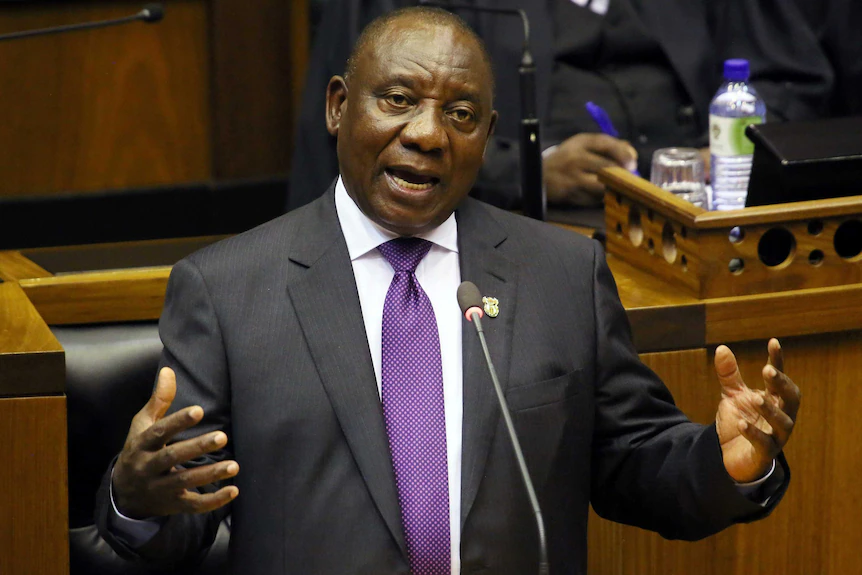 |
| Photo: ABC |
Among others, Ramaphosa has received honorary doctorates from the University of Natal, the University of Port Elizabeth, the University of Cape Town, the University of the North, the National University of Lesotho, National University of Ireland Galway the University of Massachusetts Boston and the University of Pennsylvania.
Ramaphosa received the Olof Palme prize in Stockholm in October 1987.
In 2004, he was voted 34th in the Top 100 Great South Africans.
Ramaphosa was included in the 2007 Time 100, an annual list of 100 men and women whose power, talent or moral example is transforming the world.
Ramaphosa received the Golden Plate Award of the American Academy of Achievement in 2009, presented by Awards Council member Archbishop Desmond Tutu at an awards ceremony at St. George's Cathedral in Cape Town, South Africa.
Ramaphosa was named one of Time magazine's 100 Most Influential People of 2019.
International positions
In his role as a businessman, Ramaphosa is a member of the Coca-Cola Company International Advisory Board as well as the Unilever Africa Advisory Council. He was also the first deputy chairman of the Commonwealth Business Council.
Along with the ex-president of Finland, Martti Ahtisaari, he was appointed an inspector of the Irish Republican Army weapon dumps in Northern Ireland. Ramaphosa is the honorary consul general for Iceland in Johannesburg, South Africa.
In the 2007–2008 Kenyan crisis, which followed the disputed re-election of President Mwai Kibaki in December 2007, Ramaphosa was unanimously chosen by the mediation team headed by Kofi Annan to be the chief mediator in charge of leading long-term talks. However, Kibaki's government expressed dissatisfaction with the choice of Ramaphosa, saying that he had business links with Kibaki's opponent Raila Odinga, and Annan accepted Ramaphosa's withdrawal from the role of chief mediator on 4 February. According to Ramaphosa, Odinga visited him in 2007, but he did not have any "special interest" that would lead him to favour one side or the other; however, he said that he could not be an effective mediator without "the trust and confidence of all parties" and that he, therefore, felt it would be best for him to return to South Africa to avoid becoming an obstacle in the negotiation.
President Cyril Ramaphosa: Personal life
Ramaphosa is a very private person and not much is known about his personal life. Ramaphosa was previously married to Hope Ramaphosa (1978–1989) with whom he has a son, and later married and divorced, the now late businesswoman Nomazizi Mtshotshisa (1991–1993). In 1996, he married Tshepo Motsepe, a medical doctor and the sister of South African mining billionaire Patrice Motsepe. Ramaphosa has five known children.
He owns a luxury mansion at the foot of Lion's Head in Cape Town. Ramaphosa is known to be one of the richest people in South Africa, with an estimated net worth of more than $450 million and has appeared in financial magazines such as Forbes Africa and Bloomberg.
He is a polyglot, and is known for including a variety of South African languages when delivering most of his speeches.
Ramaphosa is also the founder of the Cyril Ramaphosa Foundation.
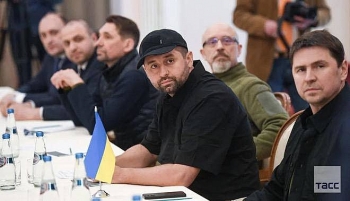 Who is the Chief Ukrainian Negotiator Arakhamia with Baseball Caps Who is the Chief Ukrainian Negotiator Arakhamia with Baseball Caps The man in a cap sitting in the middle of the negotiating table on the Ukrainian side is Davyd Arakhamia, leader of the Servant of ... |
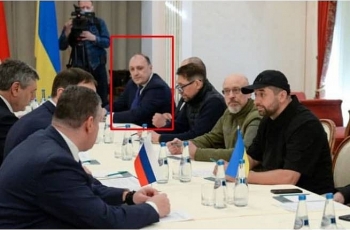 Who is Ukrainian Denis Kireev & Facts his Death, Russian Spy Who is Ukrainian Denis Kireev & Facts his Death, Russian Spy There are many Russian and Ukrainian media report the death of Denis Kireev, a member of the Ukrainian delegation at the talks. Who is Denis ... |
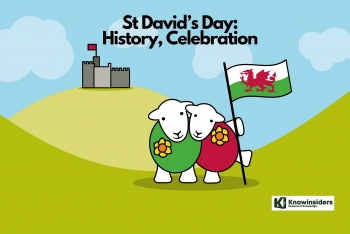 St David’s Day: History, Celebration and Who is St David? St David’s Day: History, Celebration and Who is St David? St David’s Day is one of the most colorful days of the year in Wales. Who is St David? How is St David’s Day celebrated? |
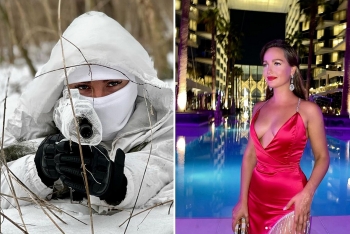 Where is Miss Ukraine Lenna After Joining Army and Biography, Personal Life Where is Miss Ukraine Lenna After Joining Army and Biography, Personal Life Miss Ukraine 2015 Anastasiia Lenna, 25, has astonished the world by picking up a gun to fight against Russia Army. Check out her biography, family, ... |



